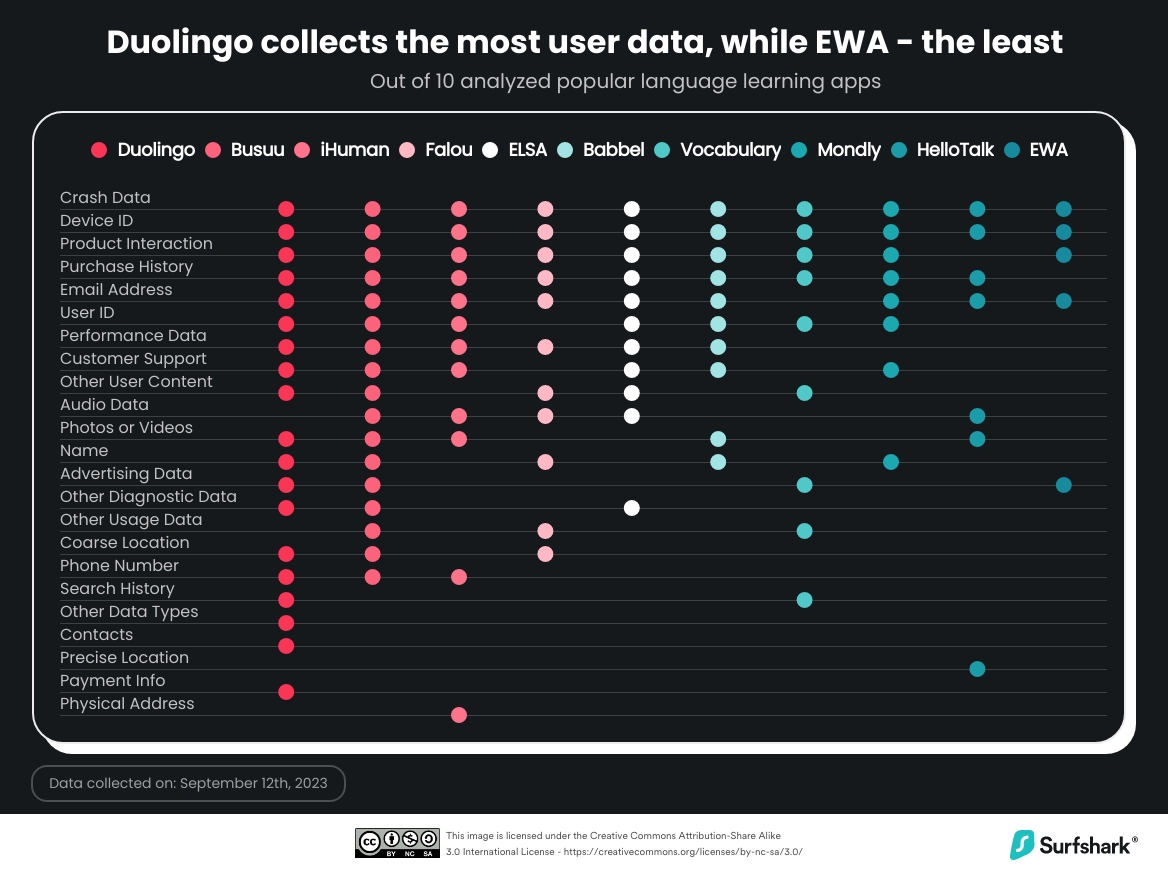Hey,
In the past I used Duolingo to study languages, but now I’m more privacy-conscious and looking for better options. And their recent data breach only solidified that intention.
I recently saw someone posted a comparison table for privacy policies of Duolingo and a number of competing products. Unfortunately I cannot find it now.
Can you give any suggestions? I’m not opposed to paid services, btw
I know this sounds crazy but i don’t think apps are the way to go at all.
I strongly recommend a combination of books and speaking to native speakers of your target language. Listening to target language media with subtitles helps too. Also essential is time delayed flash vocab cards.
The book sets you up with grammar and vocab while the media and speaking helps you with pronunciation.
I went from knowing no French to hitting A2 level French in two months by using the Nothing to B1 Assimil book, flash cards, speaking with native French speakers, media, and 3 hours of committed study Mon-Fri.
The point of apps is not to teach you a language. The point of the apps is to make money. There are better ways to learn that are time tested and battle proven.
I do think apps are useful for maintaining some level of reading fluency after establishing a baseline competency. I took 4 years of French through high school and college, but that was years ago. I stopped working on it for a long time and lost like 90% of my vocab and conjugations, but apps are bringing most of it back. They haven’t helped at all for listening though, I’ve been relying on listening to TV/movies/podcasts in French to improve as I can’t afford tutoring with any native speakers.
Anki is a free and open source spaced-repetition flashcard program. You can find many premade decks for it for pretty much any language, and you can create your own cards from real-world content you read (“sentence mining”). You can also find free (or pirated) grammar guides and similar content online. These two resources will give you the foundation for making your input comprehensible, but the vast majority of the learning you’ll do will come from simply reading and listening to native content while making as much of an effort to understand it as possible (such as by looking up words in the dictionary using a browser extension like yomichan)
See this really good guide for learning Japanese (some of the information applies to other languages too): https://learnjapanese.moe
It’s this:

From this website: https://surfshark.com/research/chart/data-hungry-language-apps
I believe the consensus is that it was deliberately misleading, but I should find the post that was made on here again
Edit: here’s the discussion https://lemmy.one/comment/3233478
That’s not to say that Duolingo is privacy respecting, of course, far from it. But it may not be as bad as it was made out to be
OMG that’s the one! Thank you! I need to review the article and discussion though
Don’t use Hellotalk, Chinese Malware. https://www.ghacks.net/2021/09/27/hellotalk-app-ht-coin-malware/
Probably not what you are looking for but my wife uses a book and a private teacher that charges 30€ for 90 minutes so… look online?
How about a textbook with accompanying audio?
Depending on your privacy concerns, ChatGPT might be an option. Check YouTube for reviews and how to create a course outline
ChatGPT is worse than Duolingo. The former will study and likely store how you talk, what you ask about and so forth. On Duolingo, unless you speak in the mic, you never have to reveal anything.
Can you give any suggestions?
What’s wrong with learning a language from an actual book?


